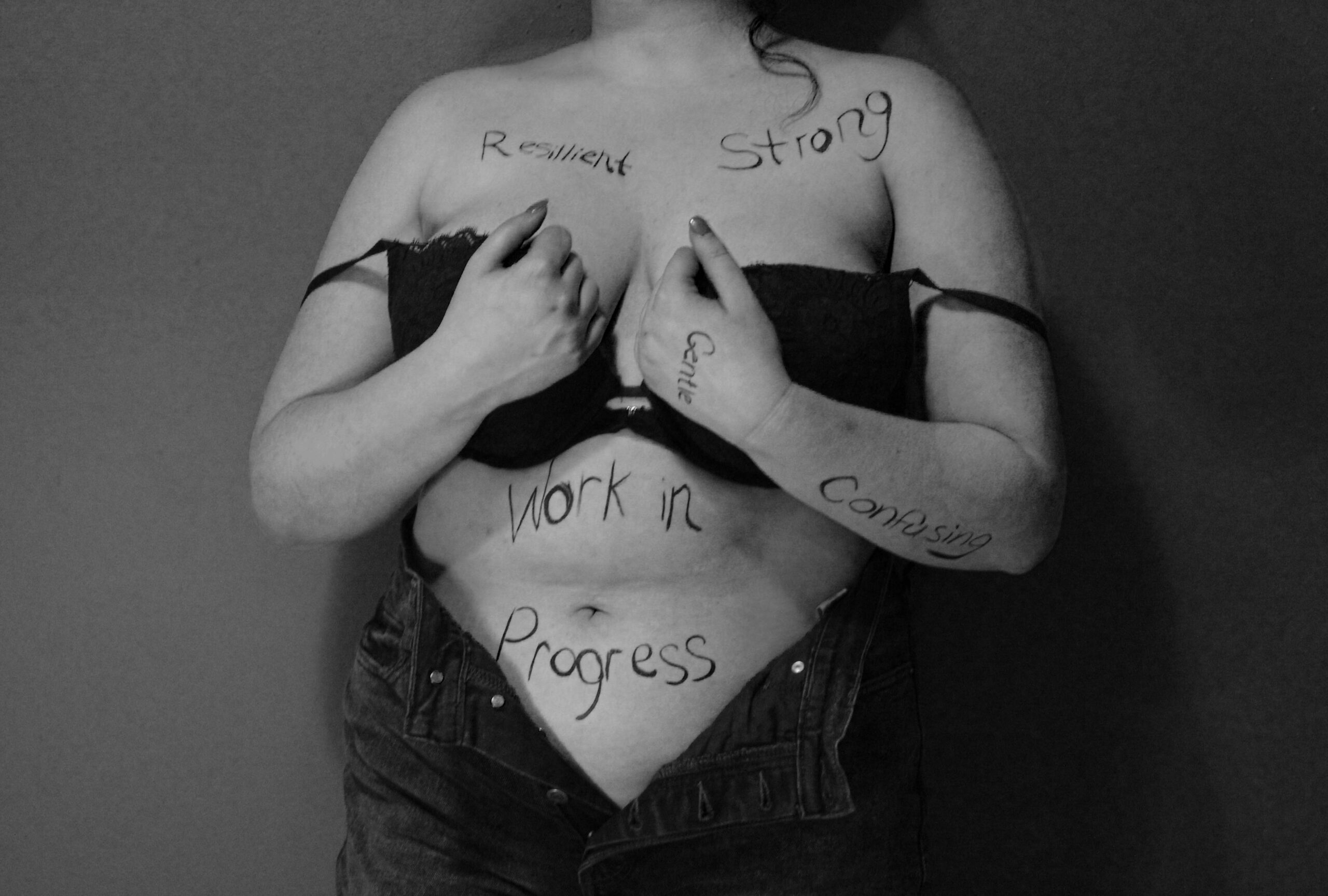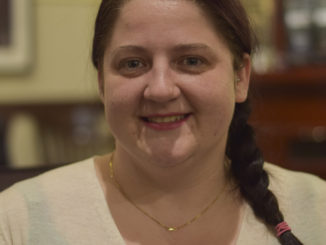One local woman wants to bring attention to a group that goes unrepresented in the conversation.

Sarah Lewis
Kicker
Stef Curran, a St. John’s comedian and playwright, says that as a plus-size person, she has never felt right telling people they suffer from an eating disorder.
“As a fat person, you’re faced with almost having to prove that you’re sick,” Curran said. “I felt like I didn’t have the right to say I had an eating disorder.”
This caused her not to seek help for a long time.
People tend to think eating disorders only impact thin people and because of the disproportionate amount of stigma that comes with being fat, says Curran, many plus-size people suffer in silence.
Curran first downloaded the popular weight loss app, MyFitnessPal, in high school. The app, known for assigning adults a calorie intake meant for small children, told her that to reach her goal weight she’d have to take in no more than 1,300 calories per day. That’s almost 1,000 calories less than what is recommended for the average woman.
Along with excessive dieting, Curran also began going to the gym, although this wasn’t the most positive experience.
“You’re walking through landmines in the gym as a fat person.”
All eyes, said Curran, felt like they were on her.
Ironically, her friends and family saw the weight loss as her getting healthy when, in fact, she was damaging her body beyond repair.
“I hate that society feels that losing weight is always an accomplishment,” Curran said. “People would praise me for losing weight, saying I looked like I was glowing.”
This led to the 26-year-old thinking that her problem was simply overeating when it was actually a much deeper issue.
When things felt out of their control, Curran began throwing up and purging meals.
“God, that’s really morbid.” – Stef Curran
“If I just make myself throw up, then I can have the calories,” said Curran about her train of thought.
Even when she was out with friends, she would investigate the nearest bathroom to make sure she would be able to throw up in private and not arouse suspicion.
“God, that’s really morbid,” Curran said.
The purging was a way she could control what she’d eat without limiting herself.
“I didn’t think about anything else.”
Paul Thomey, executive director of the Eating Disorder Foundation of NL, says everyone has a part to play in bringing awareness to eating disorders.
“We all need to become more educated on what an eating disorder is,” Thomey said, “An eating disorder is a mental illness that has serious physical implications.”
Eating disorders can cause lifelong heart problems, according to Thomey, gastrointestinal issues and even neurological issues.
While a lot of media coverage tends to show people with eating disorders as incredibly thin, Thomey says that’s not always the case.
“A person’s size is not really relevant in terms of eating disorders.”
At the moment, Curran is feeling good about herself, but she also knows it could change at any second.
“Eating disorders aren’t linear,” said Curran, “Once you have it, it will be with you for the rest of your life”




Be the first to comment